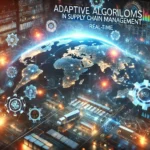Introduction
Have you ever come across the term “possiblyethereal” and wondered what it means? This intriguing concept captures something abstract and difficult to describe. In this article, we will explore the meaning of “possiblyethereal,” its key characteristics, historical context, applications, benefits, challenges, and expert insights. By the end, you’ll have a clear understanding of this fascinating idea.
What is PossiblyEthereal?
PossiblyEthereal refers to abstract and elusive concepts that embody qualities hard to define. This term is significant because it captures the intangible and ethereal aspects of various phenomena, from artistic expressions to philosophical ideas. Understanding PossiblyEthereal helps us appreciate the nuances of these subtle yet impactful elements in our world.
Historical Context
The idea of PossiblyEthereal can be traced back to ancient philosophies and early scientific theories. Philosophers like Plato and Aristotle pondered the nature of reality and existence, touching on concepts that align with the modern understanding of PossiblyEthereal. Over time, this notion has evolved, influencing various fields such as metaphysics, art, and science.
Key Characteristics of PossiblyEthereal
PossiblyEthereal has several key features:
- Abstract Nature: It involves concepts that are not concrete or easily defined. For example, the idea of beauty in art can be seen as possiblyethereal, as it varies greatly depending on individual perception.
- Intangible Quality: It often relates to feelings or ideas that are hard to describe. The sense of awe when witnessing a breathtaking landscape is an example of an intangible possiblyethereal experience.
- Wide Range of Applications: It can be applied to many fields, including art, philosophy, and science.
Applications and Benefits
PossiblyEthereal can be found in various fields, each offering unique benefits:
Art
Artists use PossiblyEthereal concepts to evoke emotions and create profound experiences. For instance, abstract paintings often embody possiblyethereal qualities by invoking deep emotional responses without depicting concrete subjects.
Philosophy
Philosophers explore PossiblyEthereal ideas to understand the deeper meaning of existence and reality. Concepts like consciousness and the essence of being often fall under the possiblyethereal category, pushing the boundaries of human thought.
Science
In scientific research, PossiblyEthereal concepts help explain phenomena that are not yet fully understood. Quantum mechanics, for example, deals with the behavior of particles at a subatomic level, often described as possiblyethereal due to its abstract and counterintuitive nature.
Challenges and Limitations
While PossiblyEthereal offers many benefits, it also presents challenges:
- Complexity: Its abstract nature can make it difficult to grasp and explain. Understanding possiblyethereal concepts often requires deep contemplation and study.
- Misinterpretation: People may interpret PossiblyEthereal concepts differently, leading to confusion. For instance, the meaning of a possiblyethereal artwork might be perceived differently by each viewer.
- Application: Applying PossiblyEthereal ideas in practical scenarios can be challenging due to their intangible nature. Translating these abstract concepts into actionable insights or practical applications requires creativity and critical thinking.
Case Studies and Examples
Here are some real-life examples of PossiblyEthereal in action:
- Art: A painting like Mark Rothko’s color field works evoke a sense of mystery and wonder, making viewers feel a deep emotional connection without any concrete subject matter.
- Philosophy: René Descartes’ exploration of the nature of existence (“I think, therefore I am”) delves into possiblyethereal concepts of consciousness and reality.
- Science: The theory of dark matter in astrophysics, which posits the existence of an unseen substance affecting the universe’s structure, embodies possiblyethereal qualities due to its abstract and elusive nature.
Expert Opinions and Insights
Experts from various fields have shared their thoughts on PossiblyEthereal:
- Art Critic: “The beauty of PossiblyEthereal in art lies in its ability to touch the soul and transcend the ordinary. It invites viewers to experience emotions and thoughts beyond the tangible.”
- Philosopher: “PossiblyEthereal ideas push us to think beyond the physical world and explore the deeper meaning of life. They challenge our perceptions and expand our understanding of existence.”
- Scientist: “In science, PossiblyEthereal concepts drive us to question the unknown and seek answers to the universe’s mysteries. They are the frontiers of human knowledge and exploration.”
Future Prospects
As humanity continues to push the boundaries of knowledge, the realm of PossiblyEthereal is poised to expand, offering fresh prospects and hurdles. Advances in technology, philosophy, and science will continue to shape our understanding of the cosmos, unveiling revelations that challenge established norms and elevate our awareness.
Conclusion
PossiblyEthereal is a fascinating and complex concept that spans across different fields. By understanding its meaning, characteristics, applications, and challenges, we can appreciate the depth and significance of this abstract idea. Whether in art, philosophy, or science, PossiblyEthereal encourages us to explore beyond the tangible and embrace the mysteries of the unknown.
Q&A Section
Q: What does PossiblyEthereal mean?
A: PossiblyEthereal refers to abstract and elusive concepts that are hard to define but hold significant meaning in various fields.
Q: Where can I see examples of PossiblyEthereal?
A: You can find PossiblyEthereal in art, philosophy, and science, where it helps explain and evoke deeper emotions and ideas.
Q: Why is PossiblyEthereal important?
A: Understanding PossiblyEthereal allows us to appreciate the subtle and intangible aspects of our world, enriching our experience and knowledge.
Q: How do experts view PossiblyEthereal?
A: Experts in art, philosophy, and science see PossiblyEthereal as a catalyst for deeper understanding and exploration beyond the tangible.
Interactive Elements
We want to hear from you! What are your thoughts on PossiblyEthereal? Have you encountered it in your life? Share your experiences in the comments below or take our quick poll.
Poll: Do you find PossiblyEthereal concepts interesting?
- Yes
- No
- Not sure






















+ There are no comments
Add yours